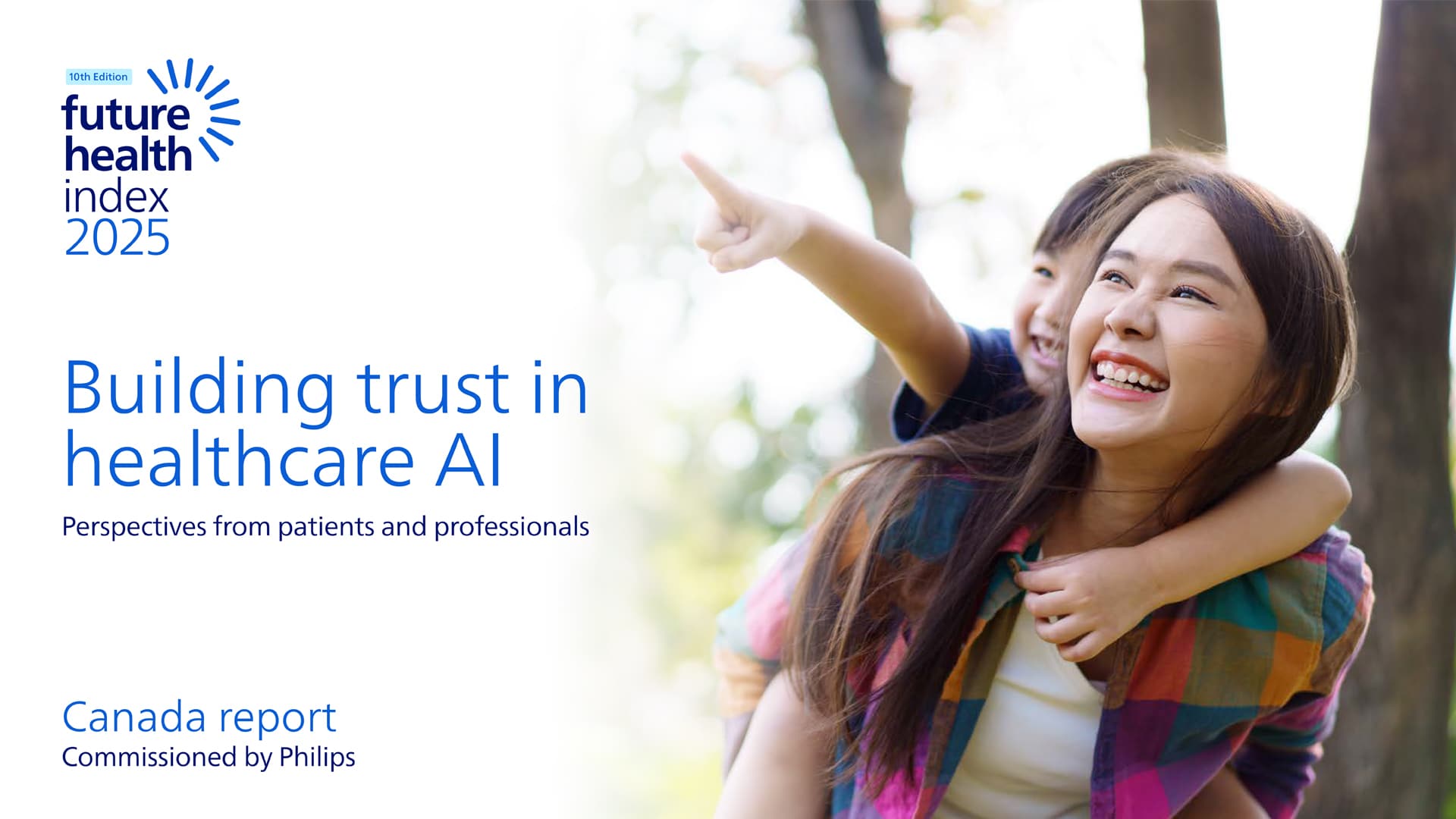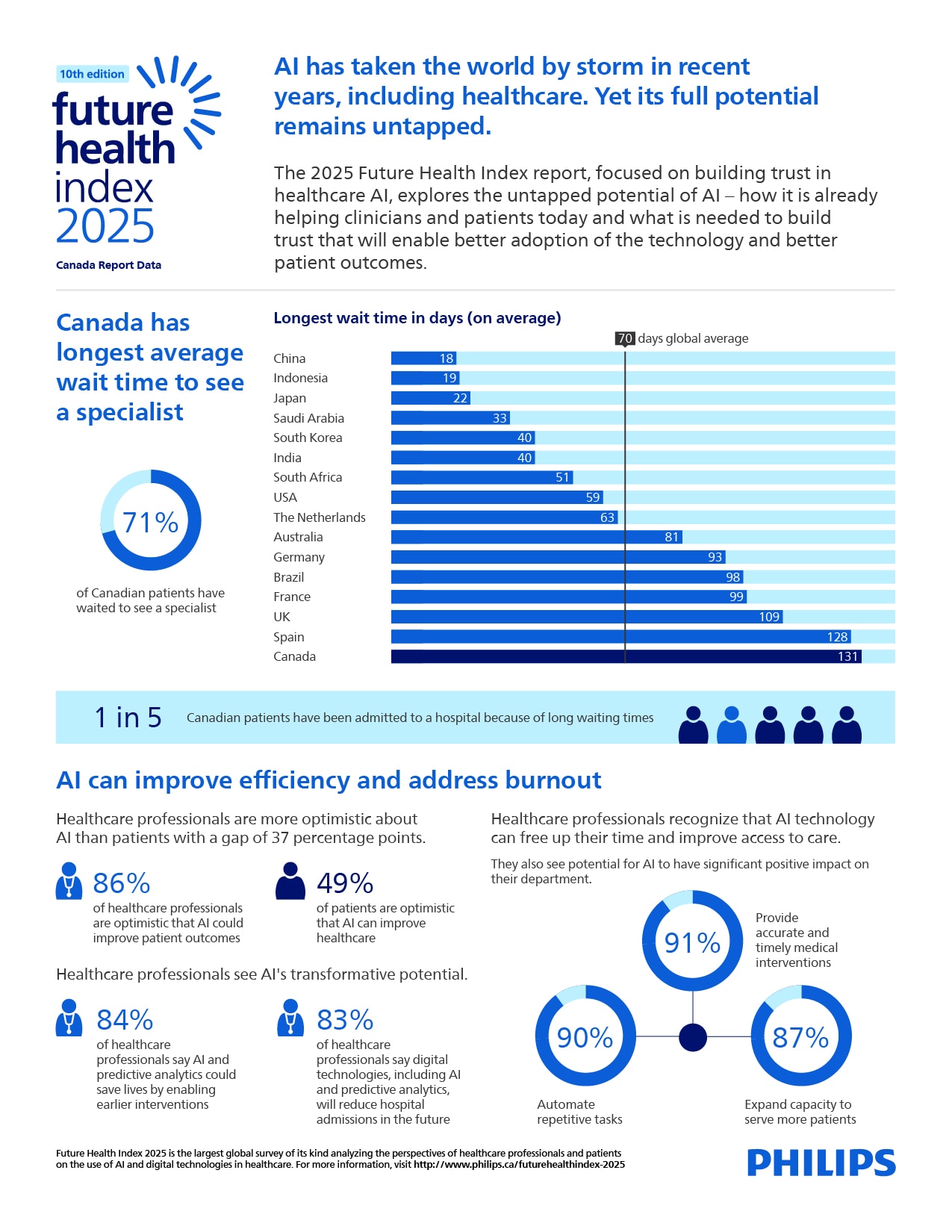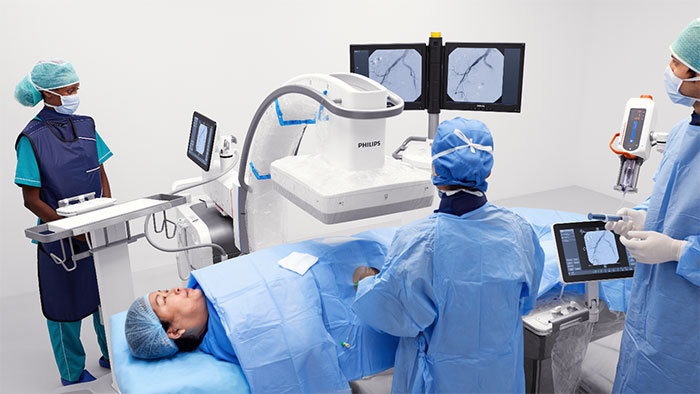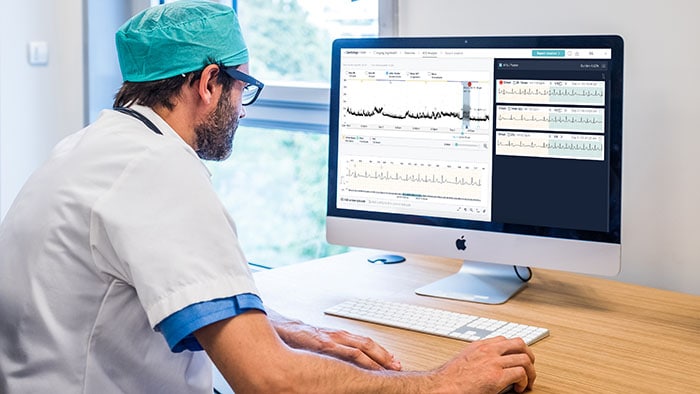Philips Future Health Index research finds 1 in 5 Canadians have ended up in hospital while awaiting care
Survey of Canadian patients and clinicians highlights AI’s potential to address healthcare challenges, revealing significant impacts of long wait times and an AI trust gap between providers and patients
Sep 23, 2025 | 2 minute read
TORONTO, ON – Royal Philips (NYSE: PHG, AEX: PHIA), a global leader in health technology, today released its inaugural Future Health Index 2025 Canada report titled “Building trust in healthcare AI.” The report explores the growing strain on Canada’s healthcare system – from delayed access to care to mounting administrative burdens – and reveals a significant trust gap between healthcare professionals and patients when it comes to artificial intelligence. While the findings indicate that AI could help address some of the system’s most pressing challenges, including improving efficiency and expanding access, the report suggests that building trust will be essential to realizing its full potential.

Long wait times
The FHI 2025 report highlights significant challenges in accessing healthcare. Nearly half of patients (45%) report long wait times securing appointments with doctors, and more than a quarter of patients (27%) say their health worsened due to the delays. Approximately 1 in 5 have ended up in the hospital while waiting for care.
Specialist appointments are often delayed, with 71% of those surveyed facing long waits. Patients face an average longest waiting time of 131 days, the highest among 16 countries surveyed and nearly double the global average, making timely access to care a major challenge for Canadians.
The potential of AI
While patients wait for care, 85% of Canada HCPs report losing clinical time due to incomplete or inaccessible patient data, with almost half of these losing over 45 minutes per shift. This stresses a need for AI and digital technologies to simplify data management and give back time to clinicians.
Ninety percent of HCPs believe that, when implemented correctly, AI can help them reclaim time by automating repetitive tasks. With specialist staff in short supply – particularly in under resourced areas – AI can support less experienced staff, helping them perform at higher proficiency levels and improving access to quality care.
Trust gap barrier to AI adoption
While 86% of healthcare professionals are optimistic that AI can help improve patient outcomes, only 49% of patients believe in AI’s potential to improve healthcare. This trust gap of 37 percentage points is one of the largest among all countries surveyed in the research. These findings highlight a critical challenge that healthcare leaders, policymakers and industry players must address to maximize the benefits of AI.
However, patients are not completely untrusting of AI, signaling a foundation where trust can continue to be built. Encouragingly, the report finds that patients are more receptive to AI when it improves access, reduces errors and gives doctors more time for personalized care.
“AI holds extraordinary promise to transform Canada’s healthcare system by improving access to care, reducing administrative burden and delivering more personalized care,” said Darran Fischer, Managing Director, Philips Canada. “Together, we can instill trust through strong, sustained collaboration across the healthcare ecosystem, from providers and patient groups to regulators and researchers.”
AI holds extraordinary promise to transform Canada’s healthcare system by improving access to care, reducing administrative burden and delivering more personalized care
About the Future Health Index 2025
The Future Health Index is commissioned by Philips and is the largest global survey of its kind, analyzing the priorities and perspectives of more than 1,900 healthcare professionals and more than 16,000 patients across 16 countries. One hundred healthcare professional and 1,000 patients were surveyed for the Canada report. The Future Health Index 2025 investigates how innovative technologies, particularly AI, can empower healthcare professionals to deliver better care for more people. For more information, or to download the full inaugural FHI 2025 Canada report, visit http://www.philips.ca/futurehealthindex-2025.
Media contacts
You are now exiting the Philips United States (US) site and entering the Philips global site. This content is intended for a global audience. It may not apply to the US and should not be interpreted as meeting US standards, executive orders or regulations.
Continue









